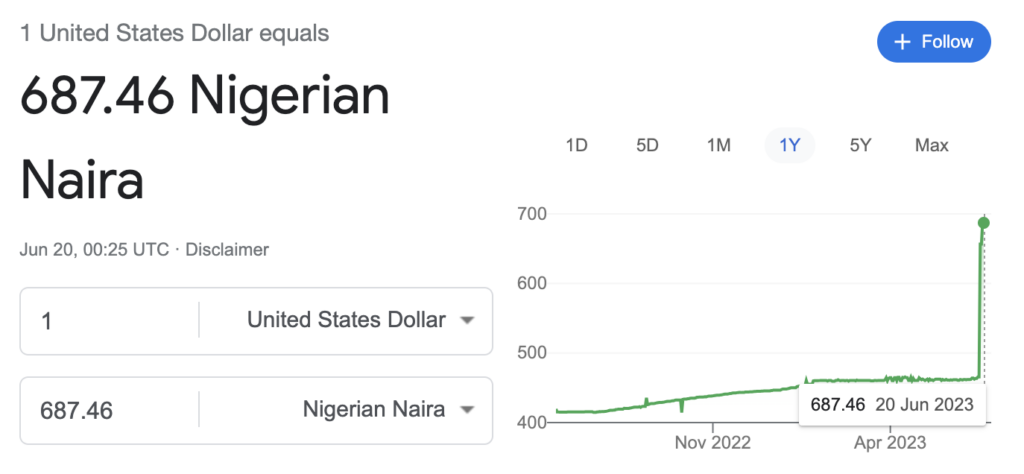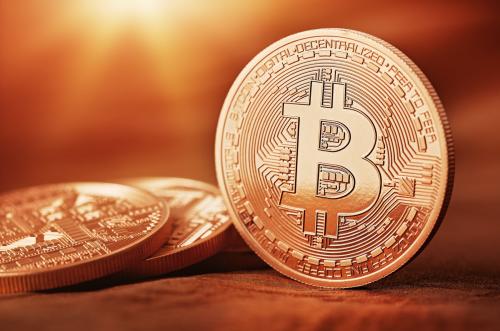The Hidden Economy: Exploring the Dollar to Naira Black Market Rate
The exchange rate between the U.S. dollar (USD) and the Nigerian naira (NGN) is a topic of great importance for Nigerians, as it has a significant impact on the economy, businesses, and individuals. One aspect that often receives attention is the dollar to naira black market rate. In this article, we will delve into the intricacies of the black market and explore its implications for Nigeria.
Understanding the Black Market
The black market, also known as the parallel market, refers to an unofficial or illegal market where foreign currencies are traded outside the official exchange rate system. In Nigeria, the black market serves as an alternative to the official exchange market, offering a different rate for converting dollars to naira. This rate is determined by market forces and can vary significantly from the official rate set by the Central Bank of Nigeria (CBN).
You may like: Naira to Dollar Exchange: Get the Best Rates with These Secrets! 🔥 BREAKING: Nigeria Goes Hard on Ponzi Schemes – 10 Years Behind Bars for Scammers!
Factors Affecting the Dollar to Naira Black Market Rate
Several factors contribute to the fluctuations in the dollar to naira black market rate. Understanding these factors is crucial for comprehending the dynamics of the exchange rate:
Supply and Demand
The most fundamental factor influencing the black market rate is the interplay of supply and demand for foreign currency. When there is a high demand for dollars and a limited supply, the value of the dollar relative to the naira increases, leading to a higher black market rate.
Government Policies
Government policies and regulations play a significant role in shaping the black market rate. Restrictive measures on the movement of capital, foreign exchange controls, and import/export restrictions can contribute to a widening gap between the official and black market rates.
Economic Stability
The overall economic stability of a country has a direct impact on its currency exchange rate. Political instability, inflation, unemployment, and fiscal deficit can erode confidence in the local currency, leading to a higher black market rate.
Related: How to Convert BTC to Naira? 3 Popular Bitcoin to Naira Converter Tools in 2023 Bola Tinubu’s Victory and Nigeria Bitcoin Adoption Bitcoin’s Nigerian Value: Get the Latest 1 BTC to Naira Conversion! Discover the Current Bitcoin to Naira Exchange Rate and How it Can Change Your Life!
Impact on the Nigerian Economy
The dollar to naira black market rate has far-reaching implications for the Nigerian economy. Some of the key areas affected include:
Inflation
A high black market rate can fuel inflation by increasing the cost of imported goods and essential commodities. This, in turn, reduces the purchasing power of individuals and exacerbates the challenges of everyday life.
Imports and Exports
The exchange rate influences the cost of imports and exports, impacting the competitiveness of Nigerian businesses in the global market. A wide disparity between the official and black market rates can hinder international trade and discourage foreign investment.
Investment
Foreign investors pay close attention to exchange rates when considering investments in a country. A volatile or artificially depreciated exchange rate, such as the black market rate, can deter foreign investment. This can have negative consequences for the Nigerian economy, as foreign investments contribute to job creation, technology transfer, and overall economic growth.
You may like: Inflation in Nigeria – How USDT Trading Could Help How Much Is $1000 Google Play Gift Card In Nigerian Naira
Strategies to Address the Black Market Rate
To mitigate the impact of the dollar to naira black market rate, several strategies can be implemented:
Monetary Policies
The Central Bank of Nigeria plays a crucial role in managing the exchange rate. Implementing effective monetary policies that promote price stability and economic growth can help stabilize the currency and reduce the reliance on the black market.
Strengthening the Naira
Efforts should be made to strengthen the Nigerian currency, the naira, through measures such as diversifying the economy, promoting exports, and reducing dependency on imports. This can help reduce the demand for foreign currencies and stabilize the exchange rate.
Related: How to Convert BTC to Naira? How much is 1 Bitcoin in Naira? 3 Popular Bitcoin to Naira Converter Tools in 2023 Bitcoin’s Nigerian Value: Get the Latest 1 BTC to Naira Conversion! Discover the Current Bitcoin to Naira Exchange Rate and How it Can Change Your Life!
Encouraging Foreign Investment
Creating an enabling environment for foreign investors is essential for attracting capital inflows. This can be achieved through policies that promote transparency, ease of doing business, and protection of investors’ rights. Foreign investment can provide a stable source of foreign exchange and contribute to narrowing the gap between official and black market rates.
Effects on Individuals and Businesses
The dollar to naira black market rate affects individuals and businesses in various ways:
Currency Conversion
Individuals and businesses that rely on foreign currencies for transactions face challenges when converting their funds at the black market rate. This can lead to increased costs, reduced profitability, and difficulties in planning financial activities.
Cost of Living
A high black market rate contributes to higher import costs, which ultimately affects the cost of living for Nigerians. The prices of imported goods, including essential commodities, can skyrocket, putting a strain on household budgets.
Business Operations
Businesses that rely on imported raw materials or machinery face increased costs, reducing their competitiveness. Small and medium-sized enterprises (SMEs) are particularly vulnerable to fluctuations in the exchange rate, as they may lack the resources to hedge against currency risks.
Government Efforts to Tackle the Issue
The Nigerian government has taken several steps to address the challenges posed by the black market rate:
Crackdown on Illegal Forex Traders
To curb the activities of illegal forex traders contributing to the black market, the government has increased efforts to identify and prosecute those involved in unlawful currency transactions. This aims to discourage the parallel market and promote adherence to official exchange channels.
Promoting Transparency in the Forex Market
The government is actively working towards enhancing transparency in the forex market. This includes improving the efficiency of the official exchange system, ensuring timely access to foreign exchange for legitimate transactions, and minimizing bureaucratic bottlenecks.
Conclusion
The dollar to naira black market rate is a significant issue that impacts the Nigerian economy, businesses, and individuals. Addressing this issue requires a comprehensive approach that focuses on improving economic stability, implementing effective monetary policies, attracting foreign investment, and promoting transparency in the forex market. By reducing the reliance on the black market and stabilizing the exchange rate, Nigeria can foster sustainable economic growth and provide a favorable environment for businesses and individuals alike.
FAQs
A1. The black market rate refers to the unofficial exchange rate at which currencies, such as the US dollar and Nigerian naira, are traded outside the formal banking system. Due to its illicit nature, the black market rate often deviates from the official exchange rate set by the government and fluctuates based on supply and demand dynamics. Currently, the exact black market rate may vary, so it is advisable to check reliable sources for up-to-date information.
A3. Completely eliminating the black market is a challenging task for any government. While authorities can implement policies to reduce its influence, the underlying factors driving the existence of the black market, such as economic instability, inadequate access to foreign exchange, and illicit activities, are complex and difficult to eradicate entirely. Governments typically focus on implementing reforms and creating an enabling environment to discourage the growth of the black market and promote transparency in currency transactions.
A4. Relying on the black market for currency conversion poses several risks. Firstly, there is a lack of regulation and oversight, increasing the chances of encountering counterfeit currency or fraudulent transactions. Additionally, the volatile nature of the black market rate means that individuals may not receive the best value for their money, leading to potential financial losses. Lastly, engaging in black market activities is illegal and can result in legal consequences for the individuals involved.
To safeguard against exchange rate fluctuations, individuals can take the following measures:
1. Utilize official channels: Whenever possible, use authorized financial institutions or reputable currency exchange services to convert currencies. These channels offer greater security and transparency.
2. Diversify currency holdings: Maintain a diversified portfolio of currencies to minimize the impact of exchange rate fluctuations. Holding foreign currencies or utilizing financial instruments that track multiple currencies can provide a hedge against volatility.
3. Stay informed: Stay updated on the latest economic and political developments that may impact exchange rates. This knowledge can help individuals make informed decisions and mitigate risks.
4. Plan ahead: When possible, plan transactions in advance to reduce exposure to sudden currency fluctuations. Timely execution of transactions can help individuals lock in favorable exchange rates.

